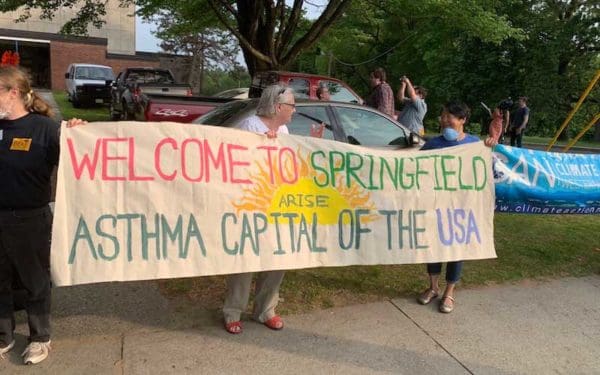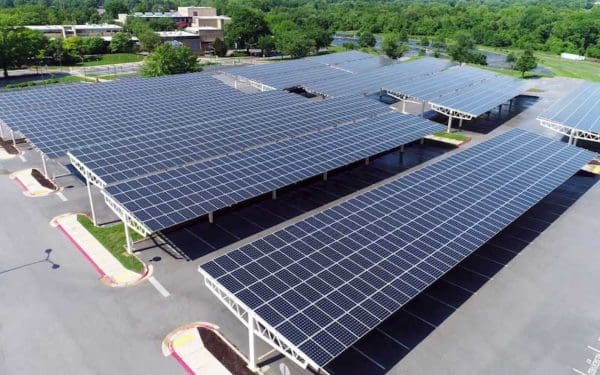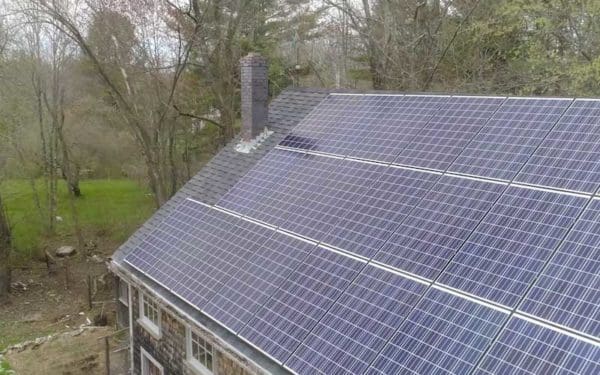Blog
July 31, 2019 | Disappointing Decisions Mark Rhode Island Legislative SessionThis session, the Rhode Island General Assembly missed opportunities to make progress on a wide range of environmental issues. CLF and other environmental organizations pushed for action on the climate crisis, toxic chemicals, and plastics pollution, but no substantial new laws were enacted. It was not a total loss, however, as we were successful in preventing passage of some harmful measures. |  |
July 26, 2019 | Sharing Boston’s Waterfront with Boston’s NeighborhoodsCLF’s annual Pitch a Blanket event shows how much people around Boston care about protecting public access to the waterfront. They also give people the chance to express their shared frustration about privatization of waterfront spaces and poor public access. This combination of factors has made the waterfront feel unwelcoming to many but the wealthy. |  |
July 24, 2019 | Climate Legislation Makes Progress in New EnglandAs the Trump administration continues to shirk its responsibilities on climate, New England states have recognized the need for local leadership to fill the federal void. |  |
July 12, 2019 | Urgent: Maine Representatives & Senators Fail Right WhalesThis is outrageous. On Wednesday, the Maine Congressional Delegation put the fate of endangered North Atlantic right whales in the hands of President Trump – a president intent on exploiting our oceans and rolling back critical environmental protections. Earlier this week, three right whales were found entangled in fishing ropes. Another six were found dead last… Continue reading Urgent: Maine Representatives & Senators Fail Right Whales |  |
July 11, 2019 | Ocean Planning Lives on in New EnglandAs the saying goes, if you fail to plan, you plan to fail. President Trump revoked the National Ocean Policy last summer, but here in New England, ocean planning – the idea that we can be smarter and more coordinated about how we collectively use and manage our ocean – lives on. |  |
July 10, 2019 | Take Action: Support Legislation to Better Protect Environmental Resources from DevelopmentNatural resources here in the Commonwealth face increasing development pressure, particularly in our coastal areas. While numerous state and local regulations are designed to protect our natural resources, one state law – known as the Dover Amendment – currently creates a potential loophole from local environmental protections when projects are proposed by nonprofit educational and… Continue reading Take Action: Support Legislation to Better Protect Environmental Resources from Development |  |
July 10, 2019 | Watch: The People’s HarborBoston is a quickly growing city, but not everyone is benefitting from that growth, especially along the waterfront. That’s why we’re inviting people to celebrate our public spaces on the waterfront – and our public right to access them. |  |
July 10, 2019 | Why Are We Here Again? Standing with Springfield Against BiomassSpringfield, alongside community and environmental organizations like CLF, has been fighting this proposed biomass plant for years. We set the fight aside in 2017 when Palmer Renewable Energy, the company behind the proposal, paused its plans for construction. But now the company is back, hoping that its efforts to weaken state policy will bring its proposal back to life. |  |
July 9, 2019 | New Hampshire Harnesses Community Choice for Clean EnergyWith recently passed legislation, community choice power is on the verge of becoming a powerful tool for local, community-based efforts to advance clean energy, save people money, and curb carbon pollution. |  |
July 8, 2019 | Maine Makes Progress on Climate, Energy, Toxins, and MoreMaine’s newly elected governor and legislature delivered on critical new laws that will cut climate-damaging emissions, protect Maine’s families and children from toxic chemicals, clean up our rivers, and save energy – all while creating jobs, growing new industries, and strengthening the economy. |  |
